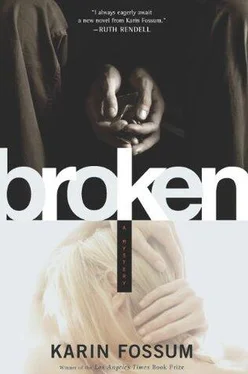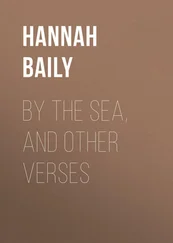That was as far as Omi took the story, but it was enough. He stopped walking, looked out towards the water, scanning the horizon from right to left, and I knew that in some way he pitied me for having grown up so near the sea that I couldn’t help but take it for granted.
Is this really the most we can ask from them, the ones who have raised us? That they leave us with memories we can cherish?
My mother won that round with the maulana, no one could deny it. But to what end? She was the safety-valve who allowed us all to release some of our frustrations as we cheered her on and said that she, too, was a voice of the nation, a voice that would make itself heard. But what came of it except a lesson to all the daughters in the audience, learnt slowly over the years, that voices such as hers could be ignored or stifled or extinguished completely? My mother’s life as an activist, brave as it had been, was a lesson in futility — and in the end, she knew it.
So I had been telling myself for a long time now. But now I had her voice echoing in my ear, the laughter of the women in the audience echoing with it. And then all the sound of the world fell away and I was left in that silence — that almost holy silence — which had grown up around her, sentence by sentence, as she so artfully moved the debate to the exact space in which she had all along intended it to exist — that accountable space. How could I call that nothing? And the thrum of my own blood as I heard her speak, how could I repudiate that?
Why is it so necessary for you to believe the version of her which you cling on to so desperately, Rabia had asked me.
Because. I looked out at the water. Sunlight cut a path through the sea.
Because. Just because.
It had been forty-six hours and seventeen minutes since the second episode of Boond ended with a shot of the crossword grid, perfectly in focus. Forty-six hours and seventeen minutes, and no word from Omi. Forty-six hours and eighteen minutes now, and I was lost in a vision of dark blues and reds and jagged lines.
‘What are you thinking?’
I turned my attention away from the ceiling of the Sadequain gallery and towards my brother-in-law, who was gesturing around the large room as though he were a game-show host and this was the grand prize. Less than fifteen minutes ago he had received a phone call offering him a solo exhibition at the gallery, and he’d run into my flat and insisted that I had to accompany him to the gallery so that I could watch him leap with joy around it and then describe it all to Rabia when she got back from her weekend trip to Islamabad.
‘Don’t you mind having that as competition?’ I said, pointing my thumb at the gloriously worked ceiling.
‘Silly girl. Sadequain’s not competition. He’s the giant whose shoulders are imprinted with my feet. He’s the guy who made me stand open-mouthed in front of a painting at the age of twelve and think, my God, this is possible. You can be just human, and do this.’
‘He died a poor, depressed alcoholic, didn’t he?’
Shakeel rocked back on his heels and looked up at the ceiling. ‘Yeah. But that doesn’t erase a single line he drew.’
As we were walking down the stairs — after Shakeel had, quite literally, leapt with joy around the gallery — my phone rang.
‘Where are you?’ Ed said. ‘I’m standing outside your flat ringing your door-bell. I’m paying you a surprise visit.’
‘Well, we’re a bad O’Hara story, then. I’m around the corner from your place contemplating dropping in on you.’
‘I’m turning around. I’m walking towards the stairs. I’m almost tripping over a cat. I’ll see you at mine in a few minutes.’
Shakeel was smirking at me when I hung up. ‘We’re a bad O’Hara story,’ he said in a high-pitched voice, batting his eyelids. I slapped the back of his head and he put an arm around me. ‘When do we meet this guy? I want to see the man whose name need only be mentioned to send my sister-in-law into a paroxysm of blushes. Let me demonstrate: Ed. There you go. Beetroot Inqalab!’
‘Oh, shut up and drop me at his house. And no, you can’t come in and wait for him.’
It took only a few seconds to get to Ed’s, and it wasn’t until the chowkidar opened the gate for me and Shakeel drove away that I realized Shehnaz Saeed might be home, and if so, there could be no avoiding her any longer.
She had called me the day after.we’d watched that first episode of Boond , and I had seen her number flash up on my caller ID screen and let my answering machine pick it up. Her message had been brief. Just, ‘Please call me.’ I hadn’t — and when I mentioned it to Ed he said, ‘It’s between you and her. If you don’t want to talk to her, don’t.’ I didn’t know if she’d tried calling in the last few days. I had pulled my phone out of its socket several nights ago when the crank calling had become intolerable.
If I was lucky, I thought, pushing open the front door, I would make it up the stairs to Ed’s section of the house without bumping into her.
But the sort of luck I needed wasn’t possible in a house with a yapping chihuahua. I was only a few feet down the entrance hall when the creature heard me and launched into what sounded like a demented version of ‘O Sole Mio’.
‘Who’s there?’ I heard Shehnaz Saeed call out, and then I had no option but to walk into that elegant room from which I had so dramatically departed nine days ago.
‘Ed’s not home,’ were her first words.
‘I know. He’s on his way.’ I was sufficiently ill at ease that I was grateful to have the canine falsetto twirling at my feet, giving me an excuse to bend down and fuss over her. I thought that would pass the conversational ball into Shehnaz Saeed’s court but she didn’t say anything, and when I couldn’t bear having my hand licked any more I stood up and said, ‘I’m sorry I didn’t call you back. Things have been very busy. My father was in town, and work’s a little crazy.’
‘Aasmaani, you don’t have to lie. I understand that you’re angry. Ed’s told me you have no desire to hear my excuses. And I’m sorry for that, I really am.’
‘I never said that to Ed.’ The chihuahua’s front paws were scrabbling at my shins. ‘Director, basket!’ I ordered and the animal darted out of the door.
‘Your mother never liked chihuahuas either,’ Shehnaz said.
And once again, in her presence, it was impossible to feel anything but utterly at ease. I walked over to the sofa and sat down across from her. ‘So why did you do it? Imitate my mother?’
‘Why do you imitate your mother?’
‘When?’
‘All the time. You have all these gestures. Like now. The way you’re sitting. The way your arm is crooked on the back of the sofa and your head is resting on your hand. That. Right there.’
I moved my arm down to my side. ‘I’m not…’
‘No, of course not. You’re not imitating her. You’re just sitting. That’s how you sit. You may have learnt it from her. You may have copied her at one point in time, but now that’s just the way you sit.’
‘I don’t understand your point.’
‘Look, my character in Boond , she smokes. It’s a big plot point. She smokes a very particular imported brand of cigarette from Guatemala or Ecuador or some other place that exports bananas. She has always smoked that brand, ever since she was a college student. In episode three, someone she’s trying to hide from will know that she’s been in his office because he’ll find a stub of her cigarette in his waste-paper basket. So, she’s a smoker, always has been. When we were filming that flashback pregnancy scene, the director said, OK, no smoking in this scene because she’s pregnant. She said, Shehnaz, do that air cigarette thing you did in Nashaa to show us she’s trying to quit. Did you ever see Nashaa , Aasmaani?’
Читать дальше












